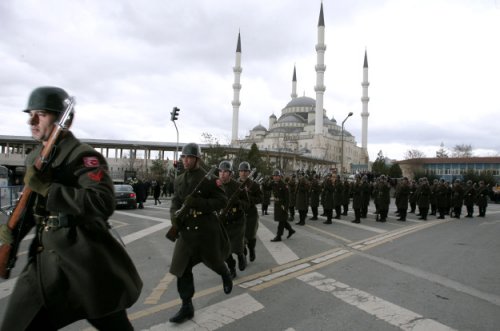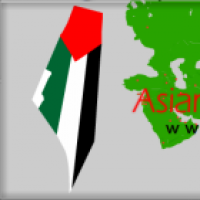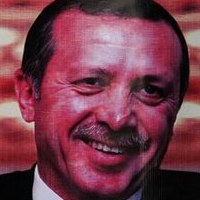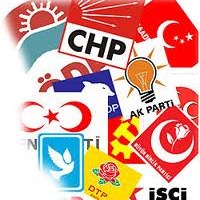The case of Çetin Doğan, a prominent Turkish Army general accused of conspiring against the government, suggests an ominous future for the country’s democracy.
Published: april 6, 2010; Foreign Policy.
by Pinar Doğan, Dani Rodrik,
On Feb. 22, Cetin Dogan, a retired four-star Turkish Army general, was detained and subsequently imprisoned by Turkish prosecutors, accused of masterminding an elaborate plot in 2002 and 2003 to topple the country’s newly elected conservative Islamist government.
He and the scores of other military officers who were also arrested — both retired and on active duty — face horrifying charges. Among other deeds, the officers stand accused of planning to shoot down a Turkish fighter jet and blow up two mosques during Friday prayers, so as to incite parliament to declare martial law. And this is just the latest in a wave of arrests targeting hundreds of retired military officers and their alleged civilian accomplices since early 2008, on charges ranging from murder to coup attempts.
For us, however, this particular arrest comes very close to home: We are Çetin Dogan’s daughter and son-in-law. We have observed intimately the development of the case against him, and the closer one looks at the details of this case, the more untenable the government’s argument becomes. Rather, his arrest, coupled with the rash of recent anti-military arrests, suggest that the future prospects of Turkish democracy are more ominous than most people think.
The military has long set the ground rules of Turkish politics. Its hard line defending secularism has resulted in frequent clashes with political movements it views as “soft” on Islam, such as the Justice and Development Party (AKP), which has governed the country since November 2002. Periodically, the military has intervened, bringing down governments and, on occasion, establishing periods of military rule, most recently from 1980 to 1983.
The narrative that has captured the headlines in Turkey and the Western media is that the recent arrests, signifying the end of an era of military tutelage, are good news for Turkish democracy. Provided the AKP and its leader, Prime Minister Recep Tayyip Erdogan, do not abuse their power, the story line goes, Turkey will ultimately emerge stronger — perhaps more pious and conservative, but also more democratic.
Until very recently, we too bought into this story. Even though the charges against some of the individuals in the earlier waves of arrests seemed far-fetched and the indictments poorly prepared, we thought these shortcomings were the product of excessive prosecutorial zeal rather than deliberate attempts to frame innocent individuals. But the way in which the case against Dogan has unfolded suggests that we were wrong.
The charges originate from a trove of documents delivered to and published by the Turkish daily Taraf. The documents include authentic voice recordings from a war simulation workshop held at the headquarters of the 1st Army, then headed by Dogan, in March 2003. These recordings make no reference to a coup or any illegal activities.
But taking a major leap of faith, the newspaper alleges that the March 2003 workshop was a dress rehearsal for the planned coup. This accusation strains credulity, considering that the workshop was recorded on Dogan’s orders and attended by scores of top brass, including observers from the high command.
The documents also include other material that has clearly been manufactured, detailing preparations for a coup. The only thing that directly implicates Dogan in this material is an 11-page document dated Dec. 2, 2002, barely two weeks after the AKP government was formed. The document has Dogan’s name printed underneath, but it is not signed. The excerpts published by Taraf contain several pointers to its fraudulent nature. There are obvious anachronisms, such as criticism of government activities that did not take place until many years later, including its push for constitutional amendments and financial pressure on the opposition press. There are verbatim extracts from a speech that was actually delivered in 2005. And there is wording that doesn’t conform to military usage.
None of the material published by Taraf and subsequently used by the prosecutors provide evidence that would stand in a U.S. court of law. No self-respecting editorial office in the United States or Western Europe would have even considered publishing the documents. The prosecutors have refused to release any of their evidence to Dogan’s lawyers — nor have they provided it to the military prosecutors, who are conducting their own independent investigation and have found nothing to corroborate the charges. Far from being presumed innocent, Dogan is forced to prove his innocence, and to do so without access to the material that is said to implicate him.
The significance of these developments goes beyond the injustice done to a man who has served his country with great honor and distinction. The facts suggest that the conflict in Turkey is not a simple power struggle between ultrasecular militarists and pro-democracy conservatives, as it is commonly portrayed. A shadowy third group is manipulating both the media and the judiciary with great success, using manufactured evidence to deliberately stir conflict. Dogan, a retired officer well known for his strong stance against Islamists, is an obvious target for such a group.
We do not know who is behind the attempt to frame Dogan and the other retired officers involved in the case. Some point to Fethullah Gülen, a Turkish religious leader based in the United States with a vast network of supporters, whom they suspect of fomenting anti-secular activities. Others, in the Turkish press, implicate a conspiracy by clandestine paramilitary groups aimed at muddying the waters and covering their own tracks. Some, implausibly, even see the finger of the CIA.
The Taraf reporter who was provided with the forged material has written that his source is a retired Army officer who served with Dogan. That is highly implausible, because the material includes documents not only from the 1st Army, which Dogan headed from 2002 to 2003, but also from the Air Force, Navy, and National Gendarmerie. A single individual could not have had access to the top-secret repositories of so many different services. Nor does it make sense that he would have waited seven years before making his cache public. Instead, it is possible that the voice recordings and other original documents, which were subsequently doctored, were leaked following an internal military inquiry that apparently took place after Dogan retired. Dogan has appealed to the military high command and the government to reveal information about this inquiry and its aftermath.
Whoever the culprits may be, it is distressing that they have been allowed to be so effective. Clearly, their interest lies not in advancing the cause of democracy, but something quite different. They aim to polarize Turkish society, discredit the military, and complicate the courts’ ability to effectively prosecute those who are truly guilty of criminal activities.
The judiciary’s reaction to the allegations against Dogan and other officers has also been alarming. Instead of questioning the authenticity of the documents delivered to Taraf, prosecutors have accepted the theories spouted by the newspaper wholesale. Sticking to what appears to have been a preordained script, they have shown no interest whatsoever in any of the explanations offered by Dogan and his lawyers during the interrogation. They have gone on a ludicrous fishing expedition that includes an attempt to link Dogan with the November 2003 bombing of two synagogues and the HSBC bank in Istanbul, even though he had already retired by then. Against all precedent and in violation of Turkish law, they have successfully appealed against a judge’s decision to release him. Dogan remains in a hospital, where he is suffering from ailments that were aggravated during his detention.
The media, for its part, has had a feeding frenzy. Lies, innuendo, and selective leaks from the prosecutors have been used to stoke public resentment against Dogan. Taraf has repeatedly asserted that the 11-page document contains Dogan’s own signature (it does not). Other newspapers have claimed, falsely, that Dogan was tipped about his impending arrest and about to flee to Mexico. The words in a leaked report by the military prosecutors have been repeatedly twisted to suggest that the report authenticated Taraf’s claims (it did not). He has been accused of feigning illness so he can remain in a hospital instead of in prison.
Such misinformation has made it practically impossible for even well-informed citizens to discriminate between fact and fiction. Journalists who have expressed skepticism of the plot’s veracity have been intimidated and targeted as putschists themselves. One highly regarded journalist has told us in confidence that he is reluctant to dwell on the inconsistencies in the prosecutors’ case, for fear of being labeled a coup supporter.
Most surprisingly, Turkish liberals have loudly endorsed the prosecutors’ activities in the interests of increased civilian control over the country, despite the obvious holes in the evidence and the gross violations of due process.
Prime Minister Erdogan and his entourage have fanned the flames by making statements that purport to support the independence of the judiciary yet clearly lend credence to the coup plot charges. One AKP member of parliament has expressed in public what many others in that party must think in private: It is now their turn to submit the military to the persecution they feel they experienced for so long. Respect for the rule of law is upheld only when convenient. A member of Erdogan’s government has even accused the judge that released Dogan of belonging to the same criminal gang as the coup plotters.
We are against military coups of any kind. We believe in a democracy where the military does not play a political role. However, we also believe that the cause of democracy and human rights is not well served by vendettas and witch hunts.
Tragically, Turkish democracy and its supporters will take the biggest hit once the full story comes out. The eventual unraveling of the case will discredit the judiciary, make the AKP government appear complicit in the debacle, shake the faith of the liberal intelligentsia, and set back the demilitarization of Turkish politics. In the interest of Turkish democracy, cooler heads must prevail.
About the authors:
Pinar Doğan is a lecturer in public policy and Dani Rodrik is “Rafiq Hariri” Professor of International Political Economy at the Harvard Kennedy School.



 RSS
RSS











[…] regime also continues to arrest military officers on trumped up coup charges. Here’s a good article on how the government is trying to intimidate the armed forces into intimidation, removing the last […]
How Turkey Manufactured a Coup Plot #turkey #islamism http://j.mp/ckCPJ4
RT @CrethiPlethi: How Turkey Manufactured a Coup Plot #turkey #islamism http://j.mp/ckCPJ4
[…] This post was mentioned on Twitter by Elisabeth, Crethi Plethi. Crethi Plethi said: How Turkey Manufactured a Coup Plot #turkey #islamism http://j.mp/ckCPJ4 […]